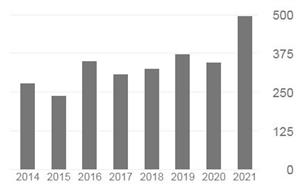Preferred Reporting Items for Animal Studies in Endodontology: A Development Protocol
Abstract
The regulated use of animals in endodontic research is often necessary to investigate the biological mechanisms of endodontic diseases and to measure the pre-clinical efficacy, biocompatibility, toxicology and safety of new treatments, biomaterials, sealers, drugs, disinfectants, irrigants, devices and instruments. Animal testing is most crucial in situations when research on humans is not ethical, practical or has unknown health risks. Currently, there is a wide variability in the quality of manuscripts that report the results of animal studies. Towards the goal of improving the quality of publications, guidelines for preventing disability, pain, and suffering to animals, and enhanced reporting requirements for animal research have been developed. These guidelines are referred toes Animals in Research: Reporting In Vivo Experiments (ARRIVE). Henceforth, causing any form of animal suffering for research purposes is not accept-able and cannot be justified under any circumstances. The present report describes a protocol for the development of welfare and reporting guidelines for animal studies conducted in the specialty of Endodontology: the Preferred Reporting Items for Animal Studies in Endodontology (PRIASE) guidelines. The PRIASE guidelines will be developed by adapting and modifying the ARRIVE guidelines and the Clinical and Laboratory Images in Publication (CLIP) principles. The development of the new PRIASE guidelines will include a five-step consensus process. An initial draft of the PRIASE guidelines will be developed by a steering committee. Each item in the draft guidelines will then be evaluated by members of a PRIASE Delphi Group (PDG) for its clarity using a dichotomous scale (yes or no) and suitability for its inclusion using a 9-point Likert scale. The online surveys will continue until each item achieves this standard, and a set of items are agreed for further analysis by a PRIASE Face-to-face Consensus Meeting Group (PFCMG). Following the consensus meeting, the steering committee will finalize and confirm the PRIASE guidelines taking into account the responses and comments of the PFCMG. The PRIASE guidelines will be published and disseminated internationally and updated periodically based on feedback from stakeholders.
Keywords: Animal, Consensus, Delphi Technique, Endodontics, Health Research Reporting Guidelines, Protocol














